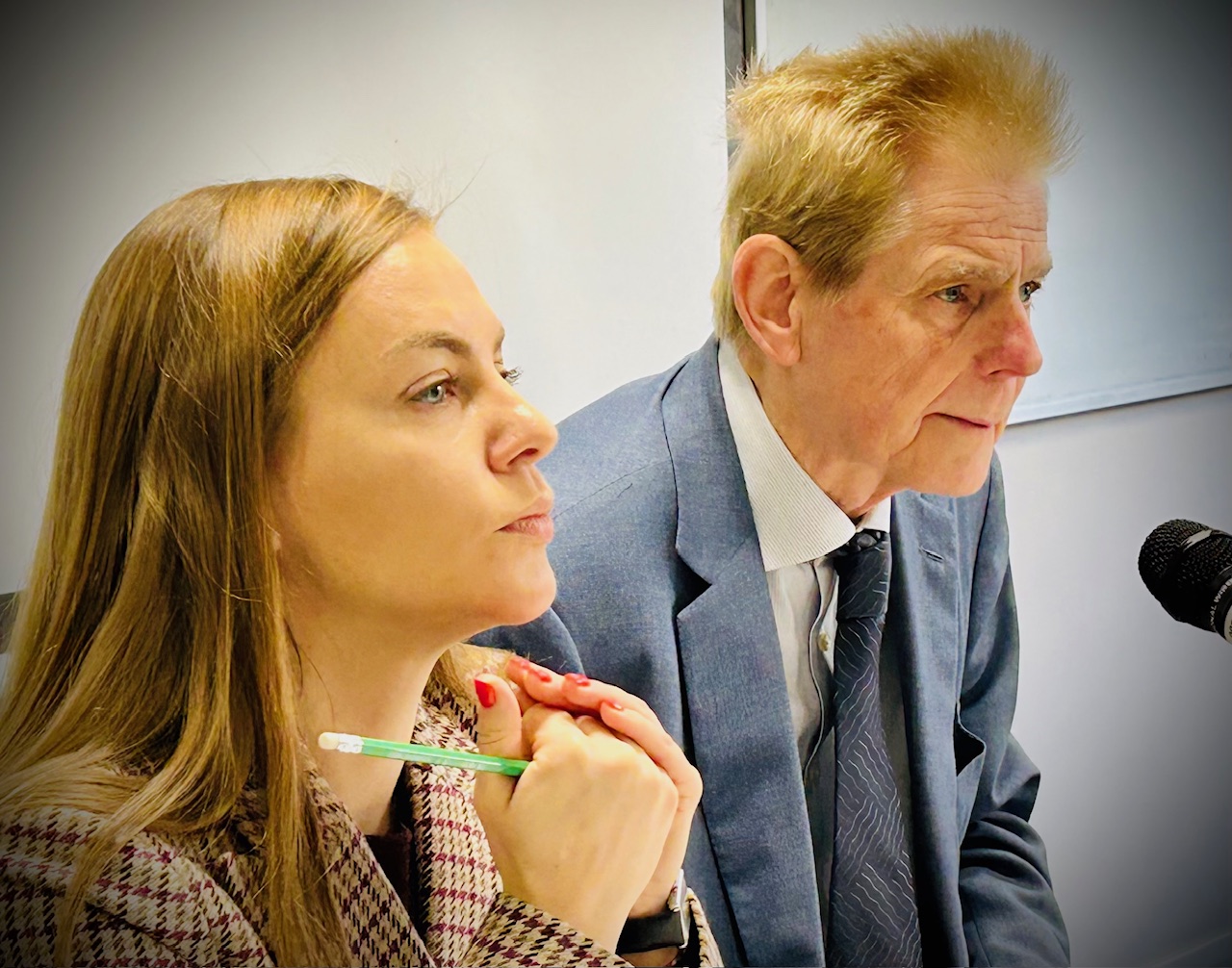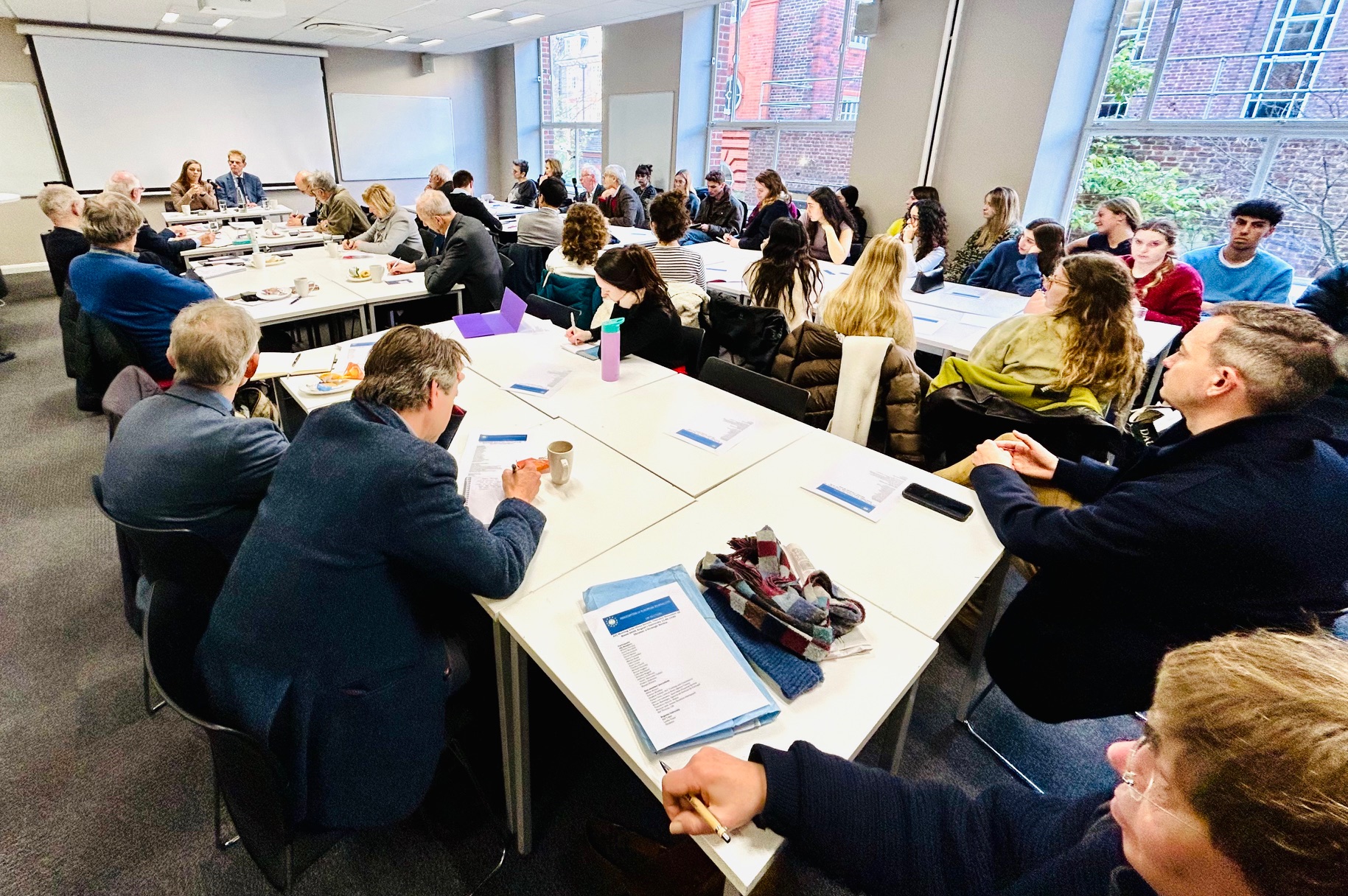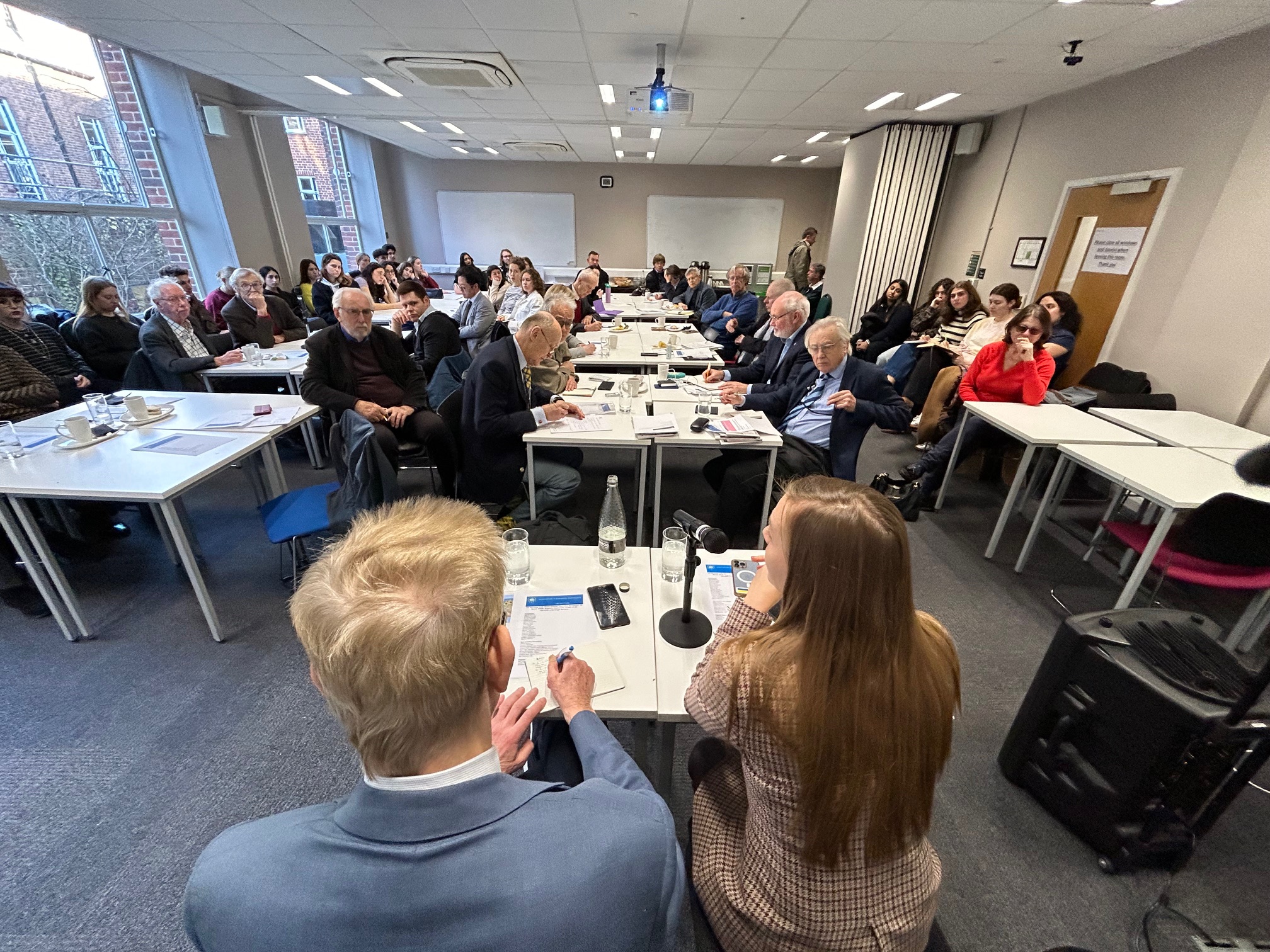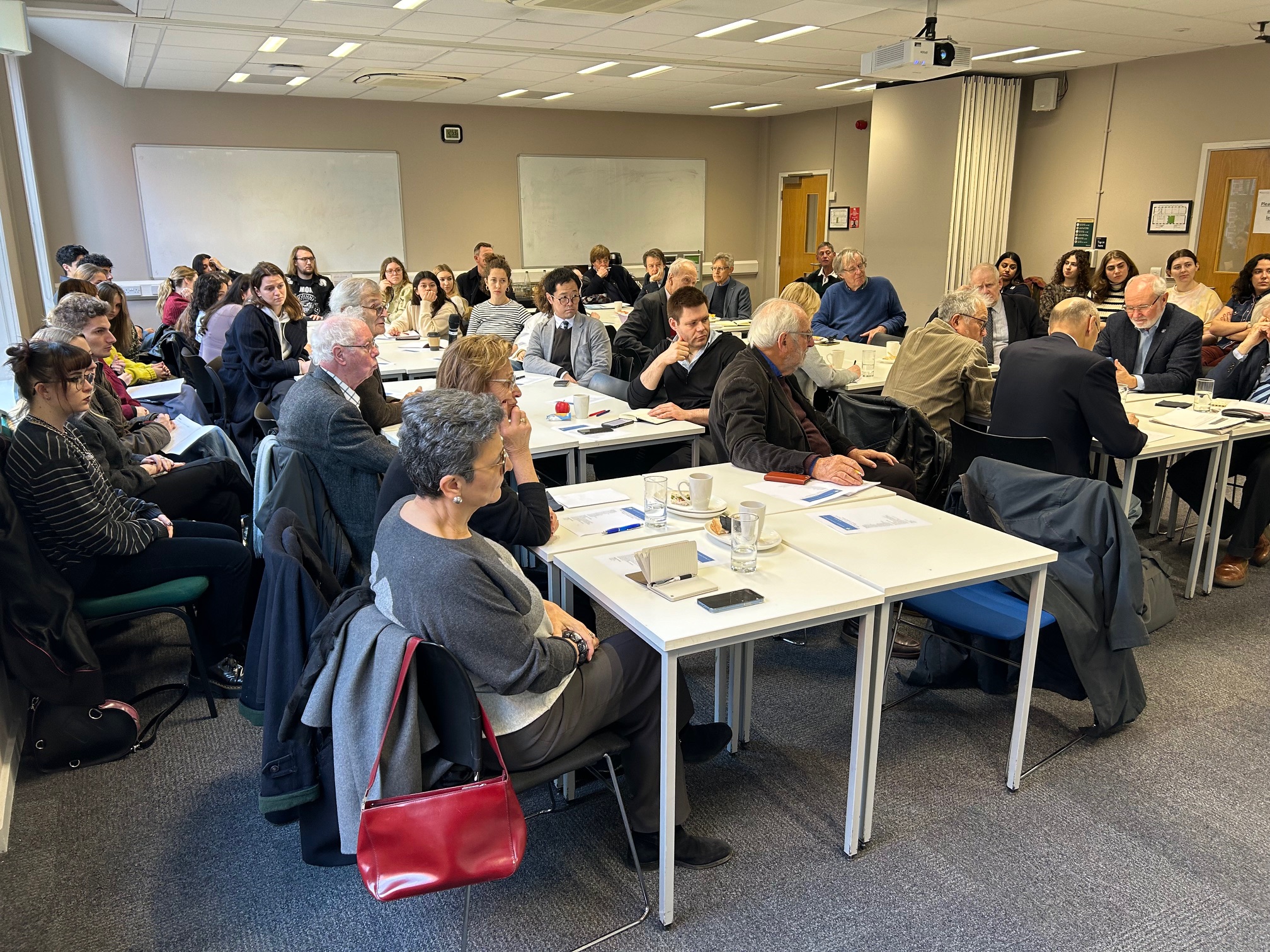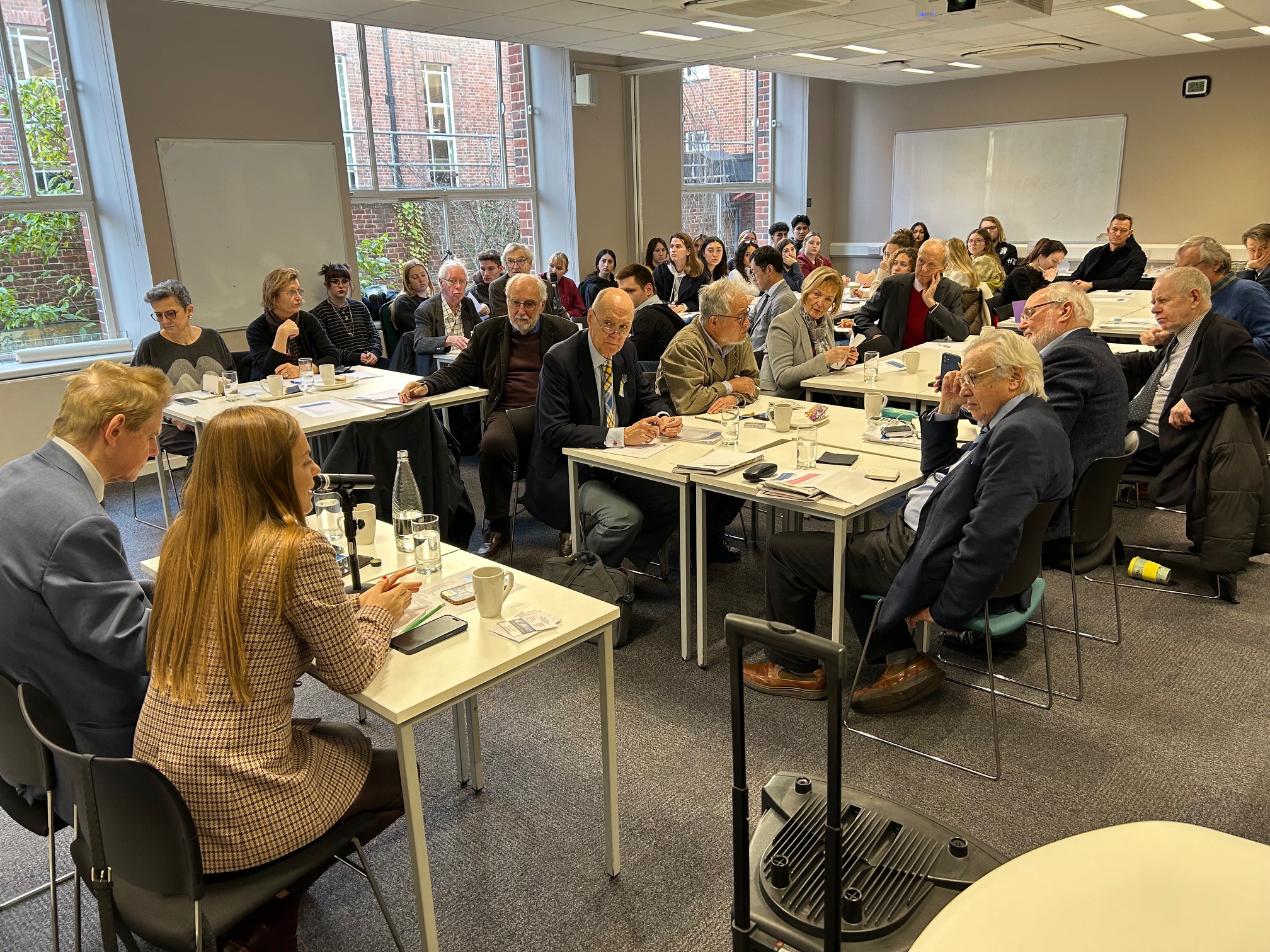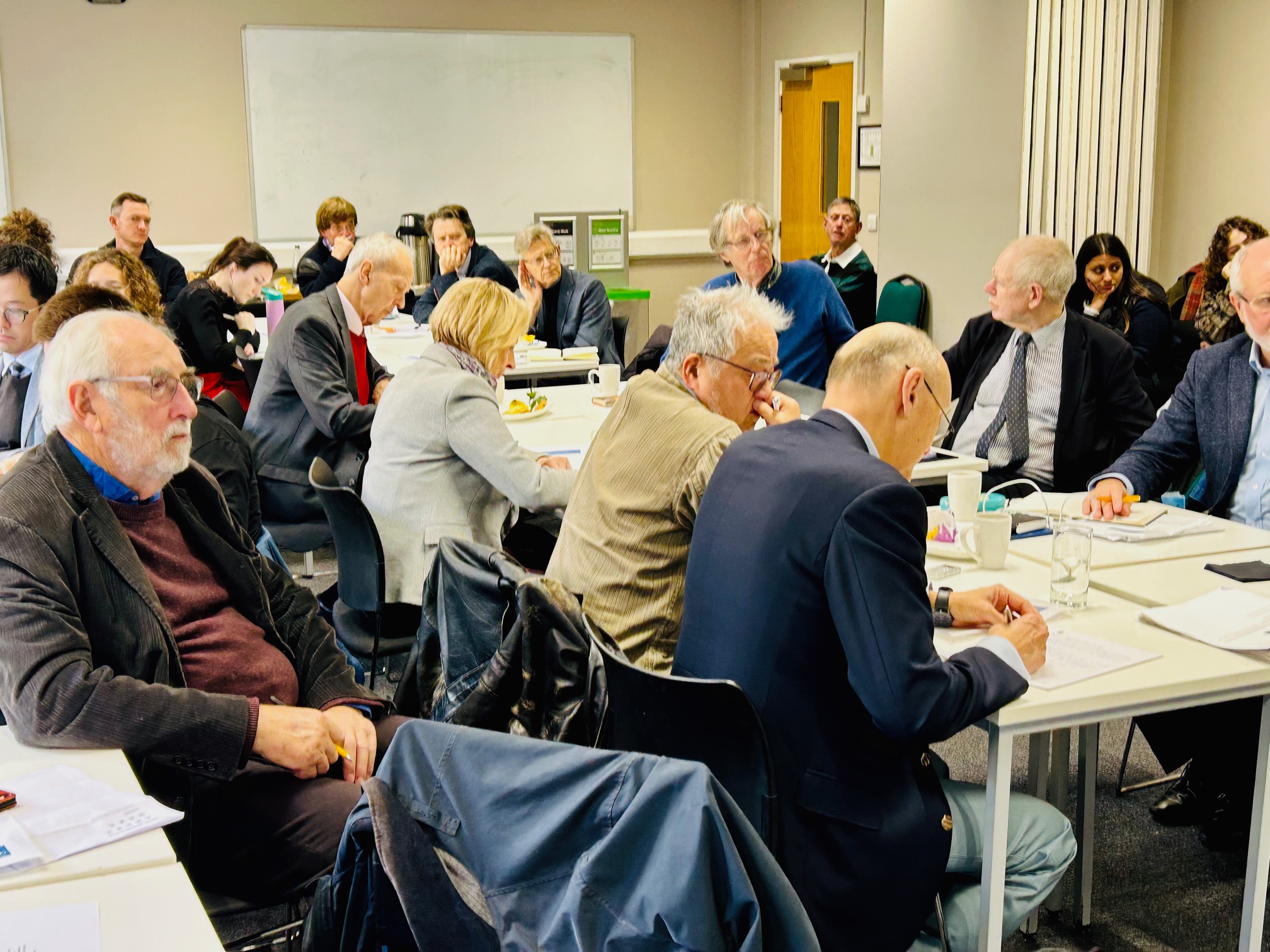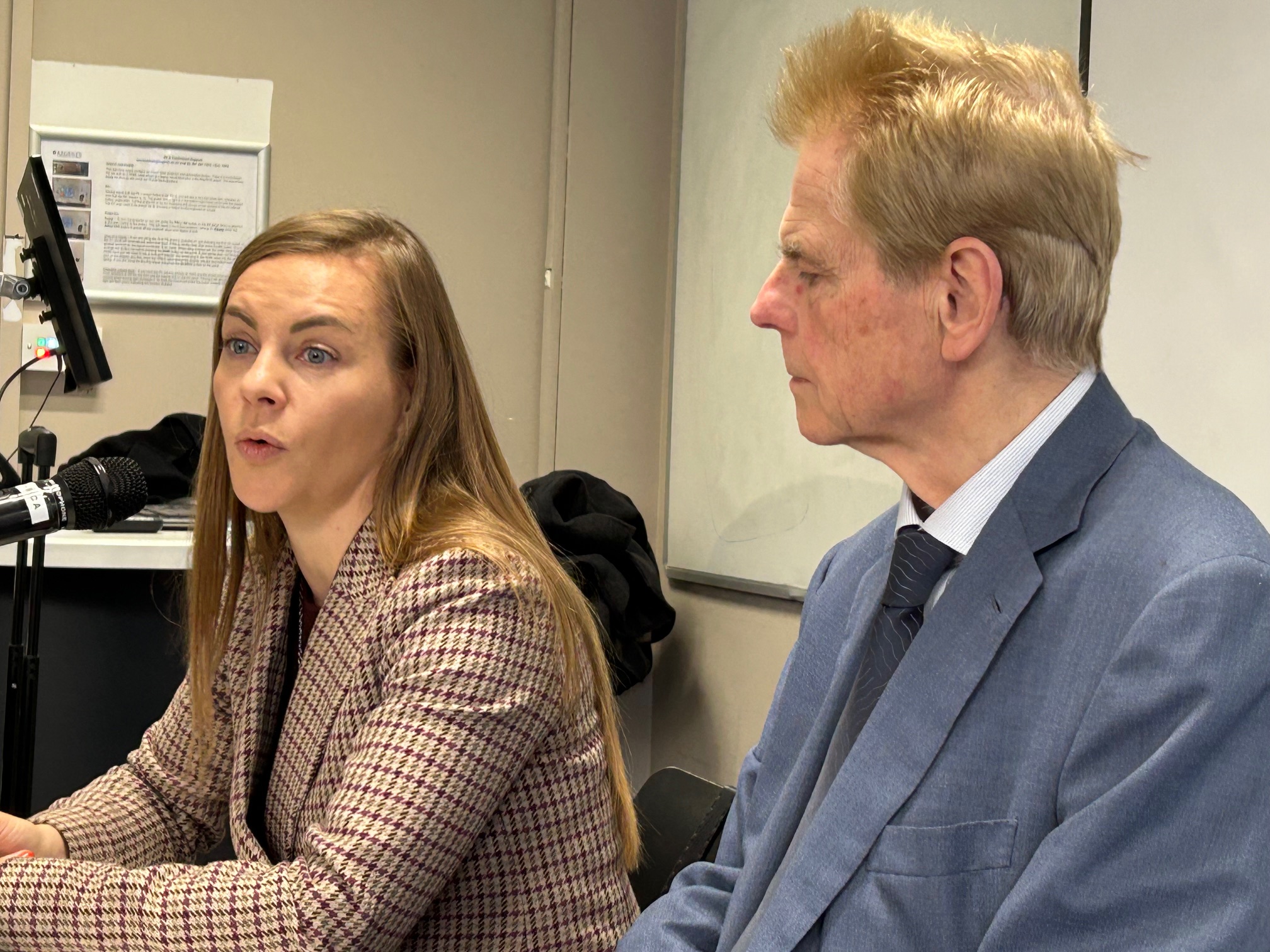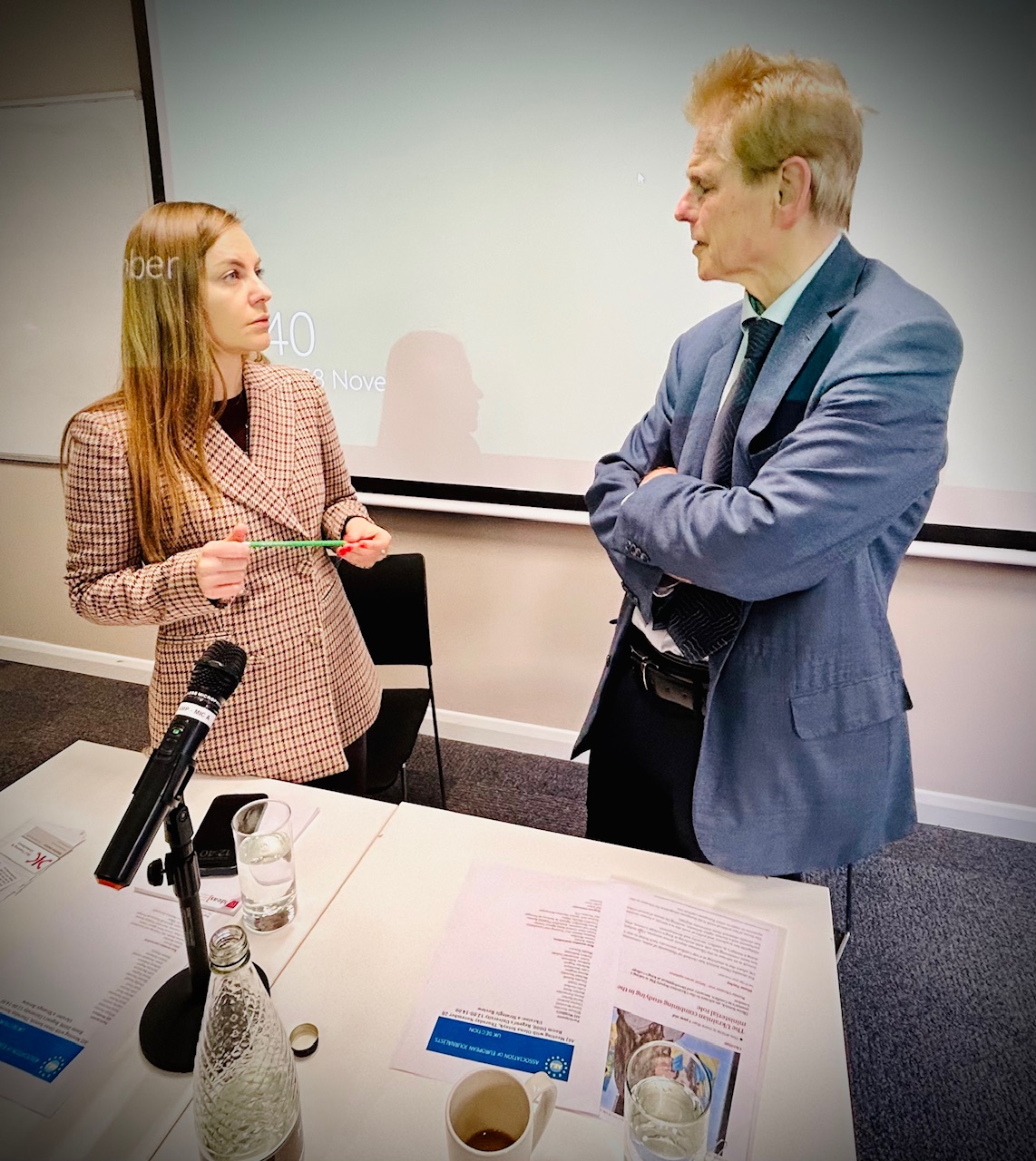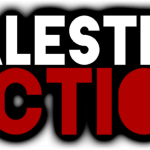The AEJ UK got an insider’s updated view of Ukraine at a lunchtime meeting on November 28.
Olena Sotnyk, an advisor to Ukraine’s deputy prime minister for European and Euro-Atlantic integration and senior representative in Kyiv of geopolitical consultants Rasmussen Global, assessed the state of the war on the ground and Ukraine’s military and social resilience as well as the future for Ukraine and the West.
As a member of the Ukrainian Parliament from 2014 to 2019, Sotnyk was chair of the parliamentary sub-committee on the approximation of Ukrainian law to EU law, and has worked as a politician and lawyer on human rights, the rule of law, judicial system reform, anti-corruption, European integration, and youth policy.
She is a member of the Council of Europe Parliamentary Assembly.
A strategic review of Ukraine
A report by Stephen Dalziel, former Russian Affairs Analyst at BBC World Service
This was a very sobering assessment of the immediate and longer-term prospects for the war in Ukraine; and for the future of Ukraine itself as a country. Ms Sotnyk is concerned that there is less attention being paid to Ukraine and to the war in the West. As an example, she cited what she called ‘the taxi test’: when she told the taxi driver in London where she was from, he seemed surprised to learn that there is still a war going on in Ukraine.
This lack of knowledge in the West was the first of the three main areas of concern which Ms Sotnyk outlined. The others were ‘the elephant in the room’: Donald Trump as the next US President and his supposed ‘peace plan’ (of which no details have been revealed); and the burning question of ‘what next?’, both for Ukraine itself and with the role the West will play.
An initial problem was the West’s reaction to Russia’s seizure of Crimea and invasion of parts of Eastern Ukraine in 2014. Many around the world seemed to regard this as an internal conflict, which possibly encouraged Vladimir Putin to launch his full-scale attack on Ukraine in 2022.
The war has divided into three main episodes. The first was the invasion itself, and Putin’s belief that his forces would take Kyiv in three days. Ms Sotnyk praised the head of the Ukrainian Armed Forces at the time, General Valerii Zaluzhny (now Ambassador to the UK), for his organisation of the resistance. This came not only from the armed forces, but from society as a whole.
The second phase followed quickly, after Putin – and much of the world – was surprised by the strength of the Ukrainian resistance. Putin withdrew his forces from much of the country, and in April-May 2022 concentrated on taking more of the Eastern regions of Ukraine.
Since then, Putin’s aim seems to have been to conduct a war ‘to exhaust’ Ukraine and Ukrainians, by destroying the country’s economy and the people’s morale. Having gone on for the past two years, Russia has stepped up this approach in recent months. In November alone, Russia has launched over 3,000 drones at Ukraine – and missiles on top of that. Clearly, an aim is to destroy Ukraine’s critical infrastructure, and the country could face a total blackout as winter sets in.
There is an imbalance on the battlefield, too. Russia is using mercenaries from Africa, North Korean soldiers and its own men as mere cannon fodder. But Ukraine is losing many of its best people: activists, business people and scientists, for example, have signed up to fight. In answer to a later question, Ms Sotnyk said that ten per cent of those serving in the armed forces are women.
Ms Sotnyk suggested, too, that the West has not yet appreciated what the battlefield is like, and the important role being played by drones. She even postulated the idea that it could become a battle between drones and robots against humans. The situation would be very different, she suggested, if two years ago the West had allowed its weapons to be used for deep strikes into Russian territory, instead of only recently. This would have meant that Russia’s logistics and logistic centres could have been destroyed.
The West, she implied, was still deceiving itself about the nature of the threat from Russia. “It is about your security”, she exclaimed, adding that unless western countries show a much stronger determination to assist Ukraine in the near future, “we may only be delaying a war that will come to you”.
The uncertainty over what Donald Trump will do when once again he becomes US President hangs over the question of Ukraine’s future. It could lead to a split in the unity of the West. Europe should not be waiting for that moment to see what happens. Europe should provide Ukraine with finance and weapons now.
In Ukraine itself, it is the people’s ‘resilience, resistance, and readiness to fight’ which is helping the country to survive. For Ukrainians, this is an existential war for the fate of the country. And Ukraine cannot cease its fight until it has obtained security guarantees for its future, so that the people will know that such a war will never be repeated. No agreement can be signed which would lose territory or the country’s sovereignty. And EU membership is ‘the light at the end of the tunnel’.
There was no shortage of questions following Ms Sotnyk’s uncompromising presentation. Among other points, she stressed how one positive to come out of the last few years is that digitalisation of the country’s administration has now taken hold, leading to a reduction in corruption, and greater efficiency and transparency.
A further criticism of the West was that many seem not to appreciate that there is ‘an evil triangle’ of Russia, China and Iran, which means that Russia cannot simply be bought off by the West. These three countries should be looked at together. As for Russia specifically, the country’s economy has clearly been affected by Western sanctions, and has weakened over the last eight months in particular. But more must be done: ultimately, it might take Western boots on the ground in Ukraine to stop Putin.
Under the terms of the Budapest Memorandum of 1994, Ukraine gave up its nuclear weapons in return for the signatories guaranteeing Ukraine’s borders. The signatories [Russia, Britain, the USA and Ukraine] failed to honour that commitment. Ukraine will not have nuclear weapons again. But now only membership of NATO will guarantee Ukraine against future Russian aggression.
Olena Sotnyk at the AEJ UK 28 November 2024
